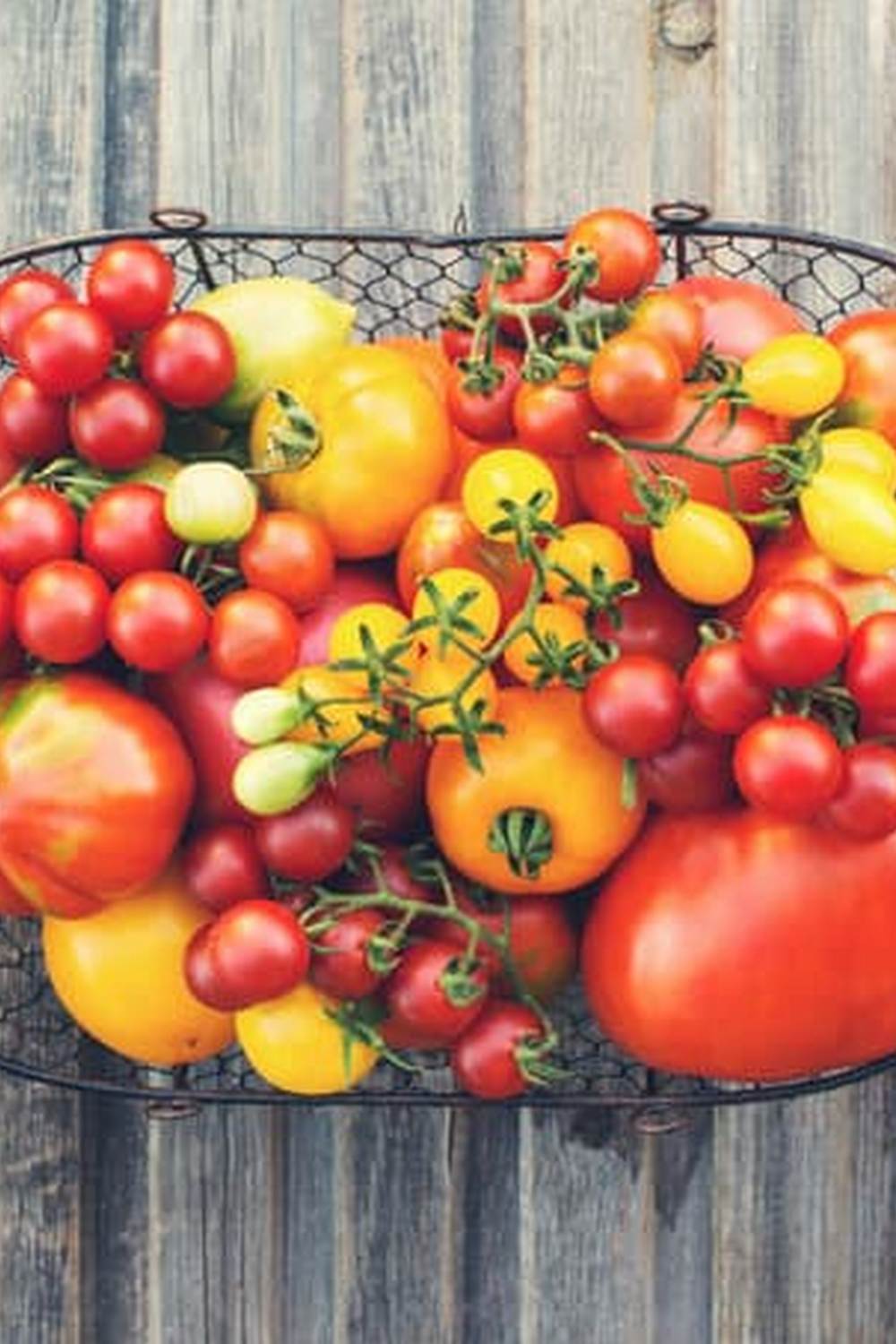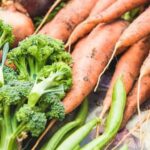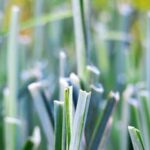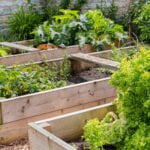Choosing the right mulch for your vegetable garden is crucial in ensuring healthy plant growth and nutrient retention. Mulch serves as a protective layer on the soil, helping to regulate moisture levels, suppress weed growth, and maintain soil temperature. But with so many options available, what’s a good mulch for vegetable gardens?
Benefits of using mulch in vegetable gardens extend beyond just weed control and moisture retention. Mulch also promotes soil health by preventing erosion, improving soil structure, and providing a habitat for beneficial microorganisms. Additionally, it can enhance the aesthetics of your garden while reducing the need for frequent watering and maintenance.
When selecting mulch for your vegetable garden, consider factors such as cost, availability, and the specific needs of your plants. Organic mulches like straw, grass clippings, and leaves offer natural nutrients to the soil as they break down. On the other hand, inorganic options like landscape fabric or plastic sheeting provide long-lasting weed suppression and heat retention benefits. By understanding these factors, you can make an informed decision on which mulch will best suit your gardening needs.
Benefits of Using Mulch in Vegetable Gardens
Mulch plays a crucial role in the health and success of vegetable gardens, providing a variety of benefits that contribute to the overall well-being of plants. One of the key advantages of using mulch in vegetable gardens is its ability to retain moisture in the soil.
By creating a barrier between the soil and the air, mulch helps reduce water evaporation, ensuring that plants have consistent access to moisture even during dry spells. This is especially important for vegetables, which require adequate hydration to thrive and produce high-quality crops.
In addition to conserving soil moisture, mulch also acts as a insulating layer, regulating soil temperature and protecting plant roots from extreme heat or cold. This helps create a more stable environment for vegetables to grow, minimizing stress on plants and promoting healthy development. Furthermore, mulch can suppress weed growth by blocking sunlight and preventing weed seeds from germinating. This reduces competition for nutrients and resources, allowing vegetable plants to flourish without being crowded out by unwanted vegetation.
Moreover, the presence of mulch in vegetable gardens can improve soil structure over time as it decomposes, adding organic matter that enriches the soil and promotes beneficial microbial activity. This enhances nutrient availability for plants and supports healthy root systems, leading to increased yields and overall plant health. With so many benefits to offer, choosing the right type of mulch for your vegetable garden is essential in order to maximize these advantages and set your plants up for success.
Factors to Consider When Choosing Mulch for Vegetable Gardens
When choosing the right mulch for your vegetable garden, there are several factors to consider to ensure you get the most out of this essential gardening practice. One key consideration is the type of vegetables you are growing. Some plants may prefer certain types of mulch more than others, so it’s important to match the mulch with the specific needs of your crops.
Climate and Weather Conditions
Another crucial factor to take into account is the climate and weather conditions in your area. Different types of mulch perform better in varying climates, so it’s essential to choose a mulch that will withstand the weather patterns in your region. For example, if you live in a hot and dry climate, you may want to opt for a mulch that retains moisture well, such as straw or pine needles.
Budget and Availability
Consider your budget and the availability of the mulch options in your area. Keep in mind that some organic mulches, such as straw or compost, may be more expensive than inorganic options like landscape fabric or plastic sheeting. Additionally, some types of organic mulch require frequent replenishing, while others break down slowly over time. Evaluate both cost and accessibility when deciding on the best mulch for your vegetable garden.
Aesthetic Appeal
Lastly, consider the aesthetic appeal of the mulch you choose for your vegetable garden. While functionality is key, aesthetics can also play a role in creating an attractive outdoor space. Organic mulches like shredded leaves or grass clippings can add a natural feel to your garden bed, while landscape fabrics or plastic sheeting provide a clean and uniform look. Ultimately, finding a balance between functionality and visual appeal will help you select the best mulch for your vegetable garden.
Organic Mulch Options for Vegetable Gardens
Organic mulch can provide numerous benefits to vegetable gardens, making it an essential component for gardeners looking to maintain healthy and productive plants. When deciding what’s a good mulch for vegetable gardens, organic options like straw, grass clippings, and leaves are commonly used due to their advantages. Here are some reasons why organic mulch is beneficial in vegetable gardens:
- Improves soil fertility and structure: Organic mulch slowly breaks down over time, releasing nutrients into the soil that are essential for plant growth.
- Controls weed growth: By forming a protective barrier on the soil surface, organic mulch helps prevent weeds from germinating and competing with your vegetable plants for nutrients.
- Retains moisture: Organic mulch acts as a natural insulator, reducing evaporation from the soil and helping to retain moisture levels necessary for plant health.
When considering what’s a good mulch for vegetable gardens, straw is a popular choice among gardeners. Straw can be used to cover the soil around vegetables like tomatoes, peppers, and cucumbers. Grass clippings are another excellent option for organic mulch, providing a free and readily available material that can help enrich the soil as it decomposes. In addition, fallen leaves from trees can be collected in the fall and used as mulch in vegetable gardens during the growing season.
Overall, organic mulches like straw, grass clippings, and leaves offer numerous benefits to vegetable gardens by improving soil health, suppressing weeds, conserving moisture levels, and enhancing overall plant growth. By carefully selecting and applying these organic materials in your garden beds, you can create an optimal environment for your vegetables to thrive.
Inorganic Mulch Options for Vegetable Gardens
Inorganic mulches can also be a viable option for vegetable gardens, offering certain advantages and benefits compared to organic options. Here are some inorganic mulch options that you may consider for your vegetable garden:
- Landscape Fabric: Landscape fabric is a synthetic material designed to suppress weed growth while allowing water and nutrients to penetrate the soil. It is a durable option that can last for multiple seasons, making it a cost-effective choice in the long run.
- Plastic Sheeting: Plastic sheeting is another inorganic mulch option that can effectively control weeds by blocking out sunlight. It also helps retain moisture in the soil and can warm the soil during cooler months, promoting better root growth for your vegetables.
When choosing between organic and inorganic mulches for your vegetable garden, consider factors such as cost, availability, durability, and the specific needs of your plants. Inorganic mulches may require initial investment but could provide long-term benefits with less frequent replacement or replenishment needed.
Some gardeners prefer to combine both organic and inorganic mulches in their vegetable gardens to reap the benefits of each type. Experimenting with different mulch options can help you determine what works best for your soil type, climate, and plant variety.
Ultimately, the right choice of mulch for your vegetable garden will depend on your specific gardening goals and preferences. Whether you opt for organic materials like straw or leaves or choose inorganic options like landscape fabric or plastic sheeting, selecting the appropriate mulch can enhance soil health, regulate moisture levels, suppress weeds, and ultimately contribute to a more successful harvest.
Mulching Techniques for Vegetable Gardens
Mulching is a crucial aspect of maintaining a healthy and productive vegetable garden. Not only does mulch help retain moisture in the soil and regulate temperature, but it also suppresses weed growth and adds nutrients back into the ground as it decomposes. When considering what’s a good mulch for vegetable gardens, it is essential to understand how to apply it effectively for optimal results.
One key technique for applying mulch in vegetable gardens is to ensure that the soil is adequately prepared beforehand. This includes removing any existing weeds or debris, loosening the topsoil, and watering the area thoroughly. Once the soil is ready, apply a layer of mulch around your plants, leaving a small gap around each stem to prevent moisture-related issues like rot or disease.
Another important aspect of mulching techniques in vegetable gardens is knowing how much mulch to use. Generally, a layer of 2-3 inches of mulch is sufficient to reap the benefits without suffocating your plants’ roots. However, certain types of organic mulches may compact over time, so it’s crucial to monitor the thickness regularly and add more as needed.
Lastly, consider utilizing different types of mulch throughout the growing season based on your plants’ needs. For example, straw might be ideal during the summer months for its ability to retain moisture and regulate temperature, while leaves could be beneficial during colder seasons as they decompose slowly and provide insulation. By understanding these techniques and adapting them accordingly, you can ensure that your vegetable garden thrives with the right choice of mulch.
| Benefit | Importance |
|---|---|
| Retains moisture | Helps plants thrive by preventing dehydration |
| Suppresses weed growth | Reduces competition for nutrients among plants |
| Adds nutrients back into soil | Improves soil fertility naturally over time |
Best Practices for Mulch Maintenance in Vegetable Gardens
Mulch maintenance is a crucial aspect of vegetable garden care that is often overlooked. Once you have selected the right mulch for your vegetable garden, proper maintenance is essential to ensure its effectiveness in weed suppression, moisture retention, and soil temperature regulation. Here are some best practices to help you keep your mulch healthy and effective.
One key practice for mulch maintenance in vegetable gardens is regularly checking the depth of your mulch layer. Over time, mulch can break down or be blown away by wind or heavy rain, leading to insufficient coverage. Ideally, the mulch should be maintained at a depth of 2-4 inches to provide adequate insulation for the soil and roots. If you find that your mulch layer has thinned out, simply add more to maintain the recommended depth.
Another important aspect of mulch maintenance is monitoring for signs of mold, mildew, or pest infestations. Mulch provides an ideal environment for beneficial organisms like earthworms but can also attract harmful pests or promote fungal growth if not properly managed. Regularly inspecting your mulch layer for any signs of issues and addressing them promptly can help prevent potential damage to your vegetable garden.
Proper watering techniques are also essential for maintaining healthy mulch in your vegetable garden. While mulch helps retain moisture in the soil, it can also prevent water from reaching the root zone if applied incorrectly. To ensure optimal moisture levels, water your garden slowly and deeply to penetrate through the mulch layer and reach the roots.
Avoid overwatering, as this can lead to mold growth and root rot. Following these best practices for mulch maintenance will help you keep your vegetable garden thriving throughout the growing season.
| Benefit | Details |
|---|---|
| Weed Suppression | Mulch helps suppress weed growth by blocking sunlight from reaching weed seeds. |
| Moisture Retention | Mulch holds moisture in the soil, reducing evaporative water loss. |
| Soil Temperature Regulation | Mulch acts as an insulator, keeping soil temperatures stable and protecting plant roots. |
Conclusion
In conclusion, the choice of mulch for your vegetable garden plays a crucial role in the overall health and productivity of your plants. By using the right type of mulch, you can provide numerous benefits such as weed suppression, moisture retention, temperature regulation, and improved soil quality.
Whether you opt for organic options like straw, grass clippings, or leaves, or prefer inorganic choices such as landscape fabric or plastic sheeting, it is essential to consider factors like cost, availability, and specific needs of your garden when making a decision.
When deciding on what’s a good mulch for vegetable gardens, remember to take into account the climate in your area, the type of vegetables you are growing, and your own personal gardening preferences. Proper mulching techniques are also key to ensuring that your plants receive all the advantages of mulch application.
Make sure to apply mulch correctly to avoid suffocating plant roots or attracting pests. Additionally, regular maintenance such as replenishing mulch layers and monitoring for any signs of deterioration is crucial in keeping your vegetable garden thriving throughout the growing season.
In essence, choosing the right mulch for your vegetable garden is not just about aesthetics but also about promoting healthy growth and high yields from your crops. By understanding the benefits of utilizing mulch and considering various factors when selecting the appropriate type for your garden, you can create an environment that fosters successful plant growth and minimizes maintenance efforts.
So next time you ask yourself “what’s a good mulch for vegetable gardens?” remember that the answer lies in thoughtful consideration of all these aspects to ensure a flourishing and bountiful harvest from your vegetable patch.
Frequently Asked Questions
What Type of Mulch Is Best for Vegetable Garden?
The best type of mulch for a vegetable garden is organic mulch, such as straw, grass clippings, or shredded leaves. These types of mulch help retain moisture, suppress weeds, and add nutrients to the soil as they break down.
Can You Use Bagged Mulch in Vegetable Garden?
Yes, you can use bagged mulch in a vegetable garden. However, be cautious with dyed or treated mulches as they may contain chemicals harmful to plants. Stick to natural and organic options when choosing bagged mulch for your garden.
When Should I Mulch My Vegetable Garden?
Mulching your vegetable garden should ideally be done after the soil has warmed up in the spring but before temperatures get too hot. This usually falls around late spring or early summer. It is important to ensure that the soil is moist before applying mulch to help retain that moisture throughout the growing season.

If you’re looking to get into vegetable gardening, or are just looking for some tips on how to make your current garden better, then you’ve come to the right place! My name is Ethel and I have been gardening for years. In this blog, I’m going to share with you some of my best tips on how to create a successful vegetable garden.





